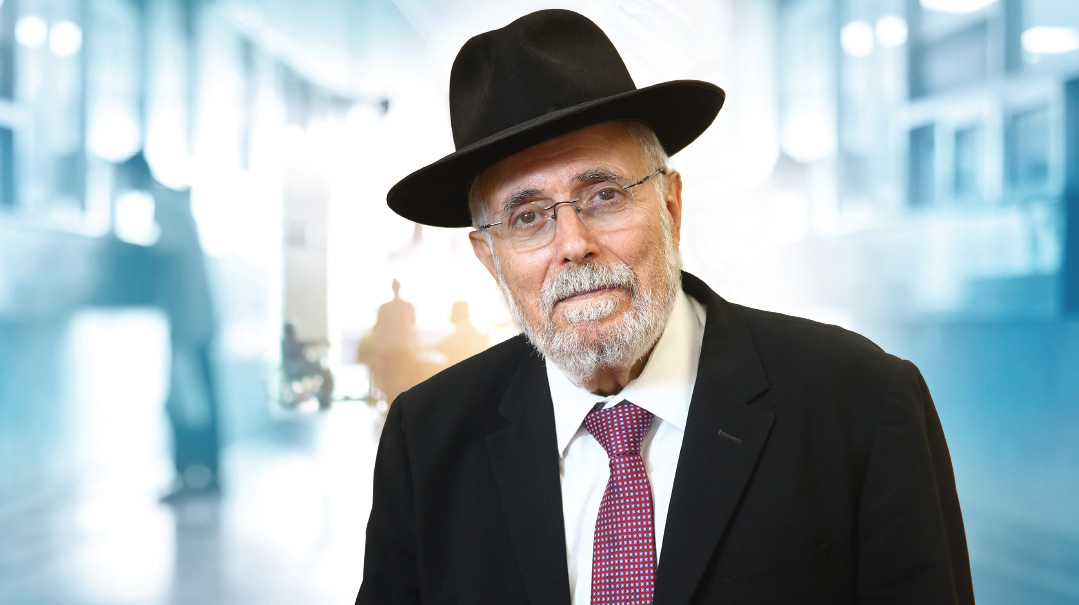Healing Heart
| October 18, 2022From where does a man fighting for his life muster up the will to help another cling to life?

Photos: Elchanan Kotler
IT was March 2020, just weeks before Pesach, when Rabbi Shlomo Ellituv started feeling under the weather. He had retired recently from the Manchester rabbinate and returned to his native Israel only two months prior when he was struck ill.
“No one could tell us what it was, so we treated it like a flu,” Rebbetzin Rivka Ellituv recalls. “We assumed we could treat it at home. We gave him antibiotics. They didn’t help. His breathing worsened, and we brought in an oxygen concentrator from Yad Sarah. Finally, his lips turned blue, and I got scared.
“ ‘Shlomo, this isn’t okay!’ I told him. ‘We’re getting you to the hospital!’ ”
At Shaare Zedek, Rabbi Ellituv joined approximately 120 others fighting for their lives in the hospital’s three coronavirus wards, victims of the virus’s first and deadliest wave.
A CT scan revealed clotting in his lungs, and the doctors administered blood thinners. He was placed in a four-person room, feeble and immobile, a transparent reservoir face mask directing a high-oxygen flow to his desperate lungs.
Within 24 hours, Rabbi Ellituv’s oxygen levels had improved, and a nasal cannula replaced the mask. After three days, he was strong enough to use his cellphone, and after three more, he could leave his bed.
One morning, a nurse’s voice jarred him awake. “Mr. Klein, you must drink,” she urged another patient in the room. “Take some water, please!”
“No! No!” the man rasped, moving his head from side to side to evade the cup and straw in her hand.
Mr. Klein was putting up a persistent fight because he had lost the will to live. He had surrendered to the virus, refusing all food, hydration, and bloodwork to embrace what he perceived as the inevitable, fast-approaching end. Here, severed from family in this guarded ward, surrounded by staff in ghoulish white bodysuits and face shields, he’d decided he would die. His 74 years had been enough. He had reached the end. Why wouldn’t they let him leave?
“Excuse me,” Rabbi Ellituv called softly to the nurse. “I’ll take care of Mr. Klein.”
The woman turned on her heels in surprise and stared through her sterile gear at the patient speaking from across the room.
“What did you say?”
“I said I will be happy to take care of Mr. Klein. But I’ll require a longer tube for my oxygen if I’m to reach him. I’m feeling stronger now.”
“You’ll require a longer tube,” she mouthed, incredulous.
He nodded.
Oops! We could not locate your form.







